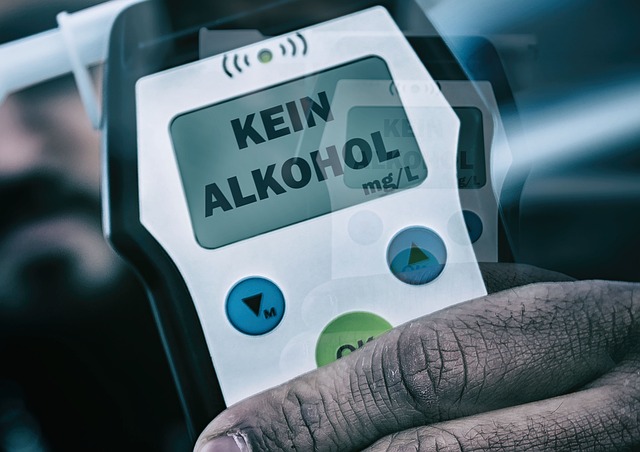Support groups play a vital role in addiction recovery by offering safe spaces for sharing experiences and encouragement, complementing traditional therapy with open communication and coping strategies. Similarly, vehicle safety features under DUI laws promote public protection and responsible driving behaviors, encouraging adherence to guidelines much like individuals in recovery. These communities empower members with insights into addiction triggers and coping mechanisms, fostering a sense of camaraderie that reinforces positive behaviors and prevents relapse. Just as advanced vehicle safety systems protect occupants and encourage responsible driving, support groups aid in overcoming substance abuse, making them both indispensable elements for personal journeys towards sobriety and public road safety.
Support groups play a vital role in alcohol and drug recovery, offering a powerful community-driven approach. This article explores how these groups facilitate healing through shared experiences and understanding. We delve into the significance of community support in overcoming substance abuse, drawing parallels with vehicle safety features that promote compliance with DUI laws. By examining these connections, we gain insights into effective strategies for both personal recovery and legal responsibility.
- Understanding Support Groups for Alcohol and Drug Recovery
- The Role of Community in Overcoming Substance Abuse
- Vehicle Safety Features: A Parallel to Recovery and Compliance with DUI Laws
Understanding Support Groups for Alcohol and Drug Recovery

Support groups play a vital role in the recovery journey for those battling alcohol or drug addiction. These peer-led gatherings provide a safe, non-judgmental space where individuals can share their experiences, struggles, and triumphs. Understanding the power of collective support is essential, especially considering the challenges faced by those recovering from substance abuse. By participating in these groups, individuals gain access to a network of like-minded people who offer encouragement, accountability, and a sense of community.
In many cases, support groups serve as a powerful alternative or complement to traditional therapy or medical treatment. They foster an environment conducive to healing by encouraging open communication and the exchange of strategies for coping with cravings and triggers. This shared understanding and collective resilience can be particularly beneficial when navigating complex issues like DUI laws and the potential vehicle safety features that play a role in preventing impaired driving.
The Role of Community in Overcoming Substance Abuse

Community support plays a pivotal role in an individual’s journey to overcome substance abuse. In the context of recovery, being part of a like-minded group offers a sense of belonging and understanding that can be incredibly empowering. Support groups provide a safe space for individuals to share their experiences, struggles, and victories without fear of judgment, fostering a supportive environment essential for healing. The power of community extends beyond individual strength; it acts as a protective vehicle safety feature for those battling addiction, offering a network of support that helps navigate the challenges of recovery.
Just as DUI law emphasizes the importance of responsible driving to ensure public safety, support groups emphasize collective responsibility in the recovery process. By coming together, individuals can learn from one another’s experiences, gain valuable insights into triggers and coping mechanisms, and discover strategies for long-term sobriety. This shared understanding and sense of camaraderie serve as powerful tools in reinforcing positive behaviors and preventing relapse, making community support a crucial component in the overall success of addiction recovery.
Vehicle Safety Features: A Parallel to Recovery and Compliance with DUI Laws

In the context of recovery and compliance with DUI laws, vehicle safety features play a pivotal role, mirroring the principles of self-improvement and accountability. Much like an individual’s journey to sobriety, modern cars are equipped with advanced safety mechanisms designed to protect occupants and prevent accidents. These features, from automatic emergency braking to lane departure warnings, encourage responsible driving behaviors, akin to the support and guidance received within recovery groups. Just as individuals in recovery must adhere to strict guidelines to stay sober, drivers must operate their vehicles with these safety systems activated to ensure compliance with DUI laws and promote overall road safety.
The parallel between vehicle safety features and DUI law compliance highlights a shared focus on prevention and responsibility. By adopting these advanced technologies, drivers take an active step towards avoiding potential hazards, just as individuals in recovery actively avoid triggers and engage in healthy habits. This synergy underscores the importance of continuous development and vigilance, both in personal growth and legal adherence, to create a safer environment for all road users.
Support groups play a pivotal role in alcohol and drug recovery, fostering community and understanding. By mirroring the importance of vehicle safety features in ensuring compliance with DUI laws, these groups emphasize the power of collective support. Just as advanced safety technologies help drivers stay secure on the road, peer support networks empower individuals to navigate their journeys to sobriety, creating a safer, healthier society.






